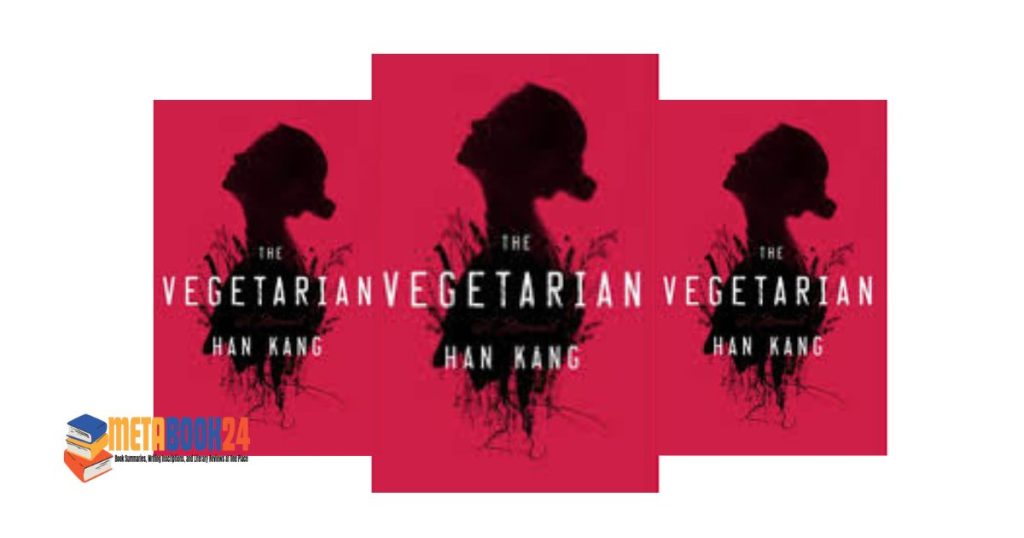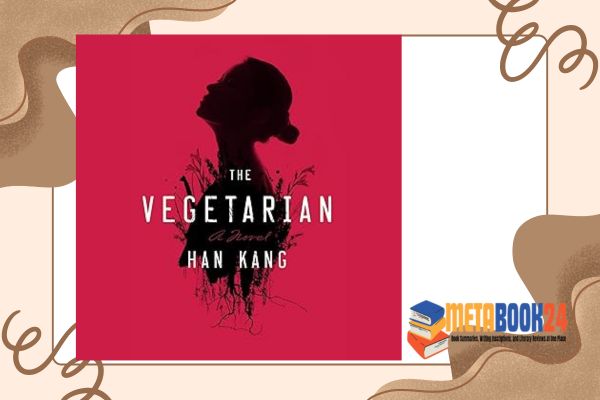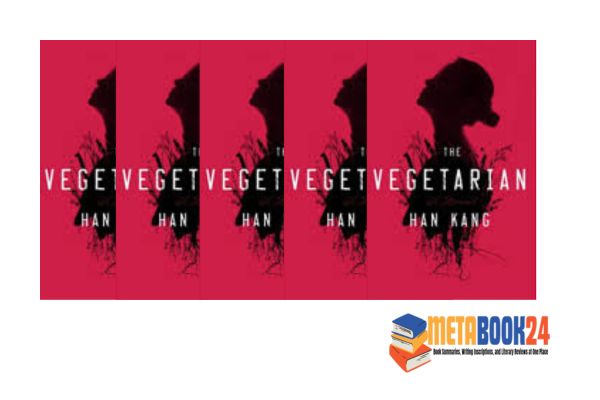
The Vegetarian is an unsettling novel by South Korean author Han Kang published in 2007. It narrates the story of Yeong-hye, a woman who decides to become a vegetarian, with a profound ripple effect on her family and society. The book is split into three sections, narrated by Yeong-hye’s husband, brother-in-law, and sister.
The protagonist, Yeong-hye, is a typical housewife who one day unexplainably decides to renounce meat due to a series of visceral dreams with violence and animal slaughtering. Yeong-hye’s revolutionary choice shocked her family, who failed to understand their loved one. Her husband, Mr. Cheong, was especially frustrated as Yeong-hye withdrew from their shared life. Later, Yeong-hye’s brother-in-law, an expatriate failed artist, becomes obsessed with his sister-in-law’s lifestyle and body art.
The climax of the second part intertwines the two characters’ fates. The last section is narrated by the protagonist’s sister, In-hye, reflecting on the aftermath of Yeong-hye’s lifestyle change. She starts questioning her identity and ways of living influenced by societal pressure and expectations—themes: rebellion against societal norms. Yeong-hye’s decision to be a vegetarian symbolizes her rejection of societal expectations. Her transformation forces spectators to think whether personal desires should be conceded under societal abnormality.

Identity and Self-hood:The novel focuses on identity or the idea of how people see us from the outside. Yeong-hye’s sudden and violent transformation forces her family to examine who they are meant to be, which then transitions into the greater societal expectations that shape our very sense of self.
The Body and Violence: The body is made to evoke violence in the novel, symbolized by its viscera. Yeong-hye’s revulsion of meat taps into a more fundamental loathing for the brutality and disposability of life itself, pushing readers to bear in mind what ruling on cannibalism means about consumer behavior and food ethics.
Mental Health:Yeong-hye deteriorates mentally and is unable to make her family understand. The book handles these difficult subjects extremely well while also exploring themes of mental illness, stigma, and the complexities of familial relationships around trauma.
The Vegetarian, Book Review
Food for Thought:The book makes readers ponder beliefs and decisions of their own. This transformation of Yeong-hye is the catalyst for a discussion about personal ethics, societal expectations, and what it really means to have agency.
Cultural Insight:Through its contemporary setting in a rapidly developing South Korea the book explores many facets of Korean culture and identity, particularly around gender roles, family dynamics and societal expectations (which are not so dissimilar to our cultural norms). The reader can enjoy a full scope of global issues through this cultural lens.
Dealing with the tough: ‘The Vegetarian’ does not shy away from problems such as mental issues, becoming cosmetic, and identity crises in its plot. It offers excellent discussion material with references to personal experience and the wider context of society and will be particularly beneficial for readers studying subjects in psychology or sociology.
Artistry:As a writer, Han Kang is widely admired for her lyrical prose and deep contemplation. The shifting narrative, changing the perspective allows for a unique reading style while showcasing human emotions and relationships in their full complexity.
Empathy/Understanding By exploring the inside lives of its characters, Sharlene Teo helps to create empathy. Readers are being forced to stand in the shoes of others, something which strengthens their contextual maturing and gets a better perception towards different points of view as well.

Book Club/Further Discussion Of The Vegetarian
With the heavy emotional toll and complex themes this novel tells a story that would lead to rich, deep discussions with any book club. These myriad interpretations may very well inspire conversations to reexplore the nature of life and personal agency.
Artistic Inquiry:The novel is one that wraps art and identity intimately into its narrative threads, with the brother-in-law as a key locus. It forces anyone who reads to consider the way creativity relates to self-expression; and grapples with what exactly is the place of art in allowing one better understanding oneself.
A Scene That Confronts Reader Prejudices: The Vegetarian has no qualms about making readers second-guess their dietary choices and views on consumption, so there are several shocking scenes that will shock you into realizing how far your beliefs can stray from the norm. While Journeyman raises pertinent ethical questions at metabook24 about how we treat animals and the environmental impacts of our food choices, these arguments have only become more relevant in regards to our discussions on sustainability and ethic
